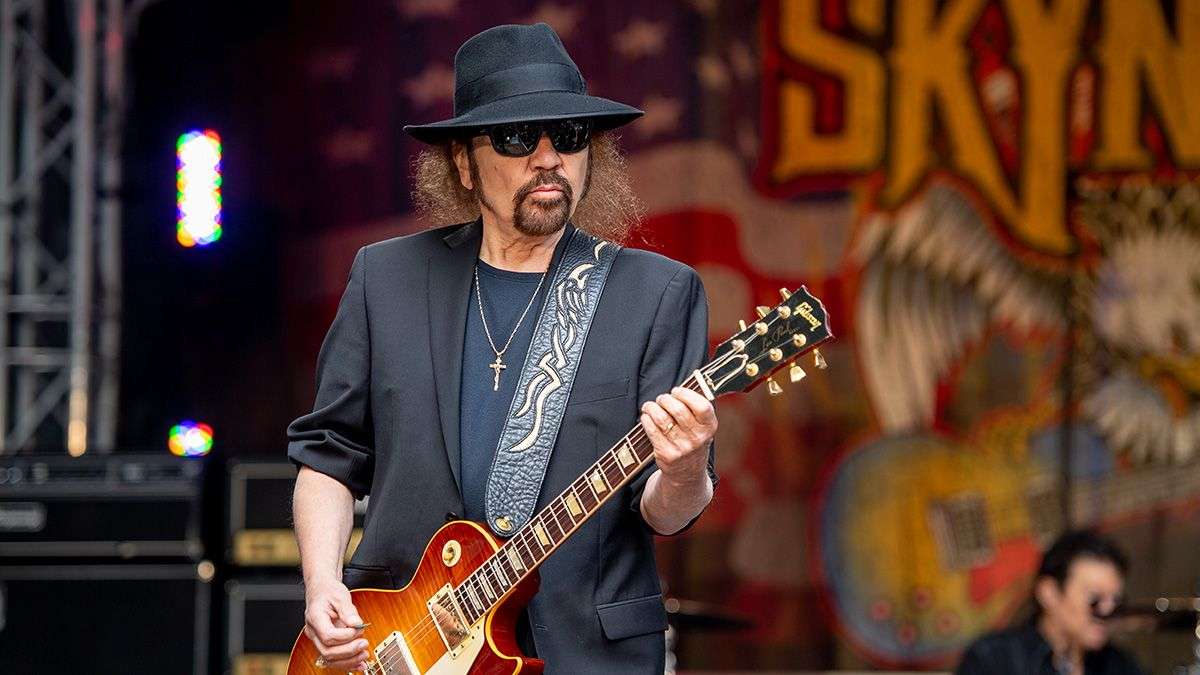How To Make Good Lyrics For A Song: To write good song lyrics, you need to find a balance between telling a story, being passionate, and using beautiful language. To make your lyrics really hit home, you need to know exactly how you feel before you start writing them. Think about the main feeling your song is trying to convey, such as happiness, sadness, strength, or reflection. This feeling will guide the words you use and the overall theme of the song.
There may be different references and words in a song written for an older audience compared to a song written for a younger audience. Knowing this makes it easy to make sure that your lyrics connect with readers on a personal level, which makes them more memorable and relatable.
The main idea or story you want to tell should be at the heart of your lyrics. Find the main idea or message you want to get across, and then build your verses and choruses around that. Whether you’re telling a specific story or spreading a general message, a good plot can keep people interested.

How to write a song for beginners?
How to Write a Song: A New Songwriter’s Guide to Song Lyrics & Melodies
Choose a title or decide on your song topic.
Write a hook/chorus on your main instrument.
Choose a song structure.
Write the verses.
Write a bridge (if you want one) and consider modulating, or a breakdown.
Write lyrics.
Record a demo version.
Writing a song can be fun and creative, even for beginners. Start by figuring out what inspires you. It could be an interesting idea, a strong mood, or even something that happened to you personally. Once you’ve found an idea, work on writing a simple song structure.
Start with an interesting chorus or hook that gets to the point of your main idea or argument. Your music is mostly about how you feel about this. Then, write down a bunch of verses that add to your theme, tell a story, or give some background. Think about the overall flow and arrangement, and try to make it make sense.
Feel free to experiment with different chord progressions using an instrument or computer tools. It’s possible to make very good arrangements with just three or four chords. When you write lyrics, be honest and use your style. Writing down your ideas and feelings is the first step to writing poems that people will want to read. Later, you can change them.
Repeated lyrics, choruses, and breaks are common in songs, which is why people remember them. Once you have a base structure built, you can experiment with different dynamics and elements.
It would help if you had patience and practice. Regular practice will help you get better at writing, even if your first attempts aren’t perfect. Allow yourself to be artistic, be open to feedback, and enjoy the process of expressing yourself through songwriting.
How do you write a really good song?
Great songwriters use these ten practical tips when composing new music and lyrics.
Compose a catchy melody.
Use all types of chords.
Create a memorable rhythm.
Build your song around a riff.
Write a song you can play live.
Step away from your instrument to write.
Get ambitious with song structure.
Many complex and artistic steps go into making a really great song. Start with an interesting subject or theme, like a unique opinion, a feeling, or a personal experience. This main idea will be the foundation of your whole song.
Create a memorable song or hook that reflects your music’s message. Often, the chorus is the most memorable and moving part of the song. Compose lines that build on your main idea and tell a story or provide more information about the situation. Use your voice and experiences to write lyrics that sound as real as possible.
Try out various chord progressions to discover a tune that goes well with your words. A lot of hit songs are made up of just a few chords, which shows that simple can be strong. Think about how the dynamics and changes will keep the music interesting.
When writing a song, structure is very important. Most songs have a verse, chorus, and bridge, which helps you remember them. But to keep people’s attention, feel free to add shocks or strange parts.
How can one experiment with rhyme schemes and wordplay when writing lyrics?
It’s important to play around with wordplay and rhyme schemes when writing catchy and remembered music lyrics. Using rhyme systems gives your words a rhythmic quality that makes them move better and look better. Think about these strategies:
As a starting point, use well-known rhyme schemes like ABAB or AABB, where the first and second lines match. These will give your songs a solid base.
Rhymes that occur inside a sentence instead of at the end are called “internal rhymes.” This technique makes the tempo more interesting and your words more deep. Internal rhymes can also be confusing or funny.
Slant rhymes are rhymes with sounds that are related but not the same. They are also called close rhymes or off rhymes. Using slant rhymes in your songs could give them a unique and surprising personality.
To have fun with words, use puns, double entendres, and new terms. Wordplay can help your songs make more sense and be more interesting or make you think.
You can use metaphors and similes to paint a clear picture in your mind. Drawing comparisons between things can give your songs more depth and feeling.

Is it hard to write a song?
It can be. Even the most seasoned Songwriters sometimes struggle with writer’s block. So if you’re having a hard time getting started, you’re not alone! But writing a song is easier when you’re feeling inspired or just in the flow.
Though everyone’s experience writing songs is different, many people find it enjoyable and challenging. A song is a fascinating work of art made up of melody, harmony, rhythm, and meaningful lyrics.
One thing is coming up with ideas. While some musicians get ideas from their own lives, others may need help to develop a strong theme. When inspiration hits, it takes skill and creativity to turn feelings or thoughts into songs that people can relate to. It can be hard to talk about complicated feelings in a real and honest way.
Making a catchy song is even more difficult. Achieving the right mix between simplicity and complexity is an art, and it can take effort to make chord progressions and arrangements that go well with the words.
It is important to consider the structure of a song, including the lines, choruses, bridges, and transitions. A song’s ability to stick in your mind depends on how well it balances repetition and variety.
Despite these problems, how hard it is to make a song is mostly a matter of opinion. Others may find it hard to turn their ideas into well-composed music, while others may find the process easy and fun. Eventually, sticking with it, practicing, and being open to new experiences can help you get past the problems and make music that is interesting and important.
What emotion do you want your lyrics to convey?
The feeling chosen for a song’s lyrics is a big part of how the music makes you feel and what it does to you. Lyrical feeling connects the artist to the audience by giving them a common experience that may hit home for each person.
Think about the wide range of human feelings, such as love, grief, joy, anger, nostalgia, strength, and more. The emotional scenery you choose will affect not only the rhythm, dynamics, and melody of the music but also the words.
The lyrics may talk about love, desire, sensitivity, or the difficulties of romantic relationships if the goal is to spread love. Instead, songs that stress resilience may show bravery, determination, and success over hardship.
How relatable and memorable a song is often depends on how emotionally powerful its words are. Music that makes people feel something or reminds them of something makes a strong connection between the artist and the audience.
Is it easy to write a good song?
Writing a song with unforgettable melodies and creative lyrics can be challenging. Even the most experienced songwriters go through writer’s block at some point in their career, and there are many different approaches to songwriting.
Each person has a different individual ability to write a good song. Some people think making songs is an easy and natural way to express themselves, while others may find it hard to write a song that people will want to listen to.
A great song needs a lot of skills, like being able to play music well, making people feel something, and writing creative lyrics. It can be tough to come up with an interesting idea or story, express it through moving words, and pair it with music that people will remember.
Finding the right balance between depth and ease can be challenging. It takes a light touch to write a song with a deep message or feeling that is also appealing and easy to understand. Finding the right chord progressions, arrangements, and harmonies to go with the words can be challenging.
The way the lines, choruses, and bridges are put together makes the song even more complicated. Mastering the skill of creating a musical flow that keeps people interested without getting bored takes time.
How to Create Unique Lyrics for a Song
It would help if you were inspired, honest, and ready to try new things in order to write original lyrics for a song. Here are some tips on how to write catchy lyrics:
Find Your Voice: Discover what makes you unique and express your experiences, point of view, and attitude through your songs. Being honest and real is not a bad thing.
Unconventional Points of View: Disrupt traditional songwriting conventions by learning unconventional points of view or narrative tactics. Write as if you were a lifeless object, an idea, or a character with a strange past.
Experiment with different language tenses, such as conversational, informal, and abstract. Wordplay, metaphors, and skillful phrase structure can help your lyrics create depth.
Take Inspiration from a Variety of Sources: Experiment with components from other genres, countries, and eras to broaden your musical views. Include features that aren’t typical of your field but speak to you personally.
Create Rich Imagery: Use words to explain concepts. Evocative words and striking images stimulate emotions and create a strong visual impact.
Experiment with New Song formats: Break away from the usual when it comes to song forms. Experiment with non-traditional verse-chorus patterns, unexpected adjustments, and creative arrangements to keep your audience interested.
Whats the best way to go about writing
Combining structured planning with free imagination is the most successful way to write lyrics. Consider the following advice to help you with the lyric-writing process:
Begin with Inspiration: Draw Inspiration from personal events, emotions, or insights. It might be a strong feeling, a story, or an interesting idea. An idea is often the starting point for catchy songs.
Figure Out Your Main Idea or Theme: Make sure the words support the main idea you want them to. It’s easier to write words that fit together when your message is clear. Your words will have focus and direction if they have a clear message.
Think about the structure of the song. Know how the verse, chorus, and bridge are put together. Here, you can choose the flow of your song. Choose the line that makes you feel the most in the song.
Write an interesting song or hook that shows what your music is about. The hook is important for keeping people interested because it is usually the part that is played repeatedly.
Try out different rhythmic patterns, meters, and rhyme schemes to find the one that works best for your song. Hymns that rhyme with each other and meter changes can give your words style and melody.
After writing a rough draft:
- Go back and improve the words.
- Make sure everything makes sense, is clear, and doesn’t have any extra words.
- Think about how well the music fits with the words and how they flow together.
Ask for Help: Show your lyrics to artists, business partners, or friends you trust. Giving yourself helpful criticism could help you advance in your job and learn new things.
There is no one right way to write songs. It would help if you tried different approaches until you found one that works for you. Be open to new ideas, and most importantly, be yourself in your writing.
If you want to write songs that move people, you need to know a lot about feeling, storytelling, and your audience. As you start your creative journey, remember how your words make people feel. No matter, if you want to bring joy, pain, or strength to people through your music, a strong emotional anchor, will shape the lyrics you choose.
Think carefully about who you’re writing for, and change your words and ideas so that they really hit home with them. Songs can reach people of all ages and backgrounds, but it’s important to know exactly who you’re writing for so that your words will hit home with them.
Your words are based on the main idea or story you want to tell. This gives your story or idea structure and meaning, which helps people understand what you’re saying. Whether you’re writing about a personal experience or a truth that applies to everyone, a well-known theme gives your creative inquiry structure.
Feel free to experiment as you learn to write songs using language. To make your songs more complex and subtle, use wordplay, rhyme schemes, and symbolic language. When done well, the way the words and melody interact creates a beautiful and lasting musical experience.
Lyrics that are well-written combine feeling, understanding, and original thinking. By putting these parts together in the right way, you can write lyrics that not only go with the song but also speak to people’s feelings and thoughts.







Leave a comment